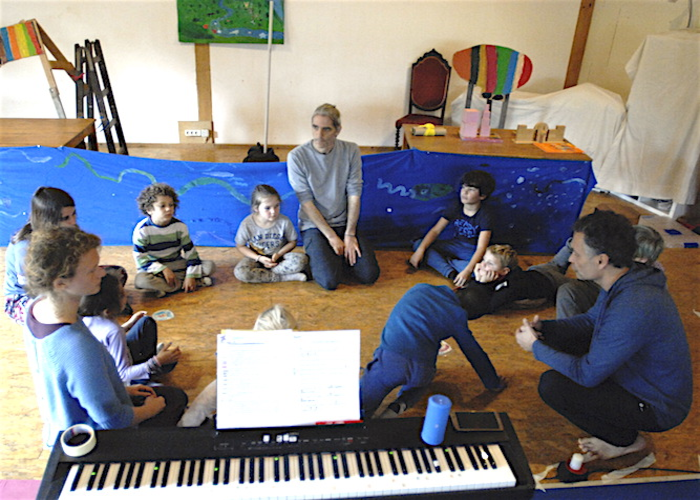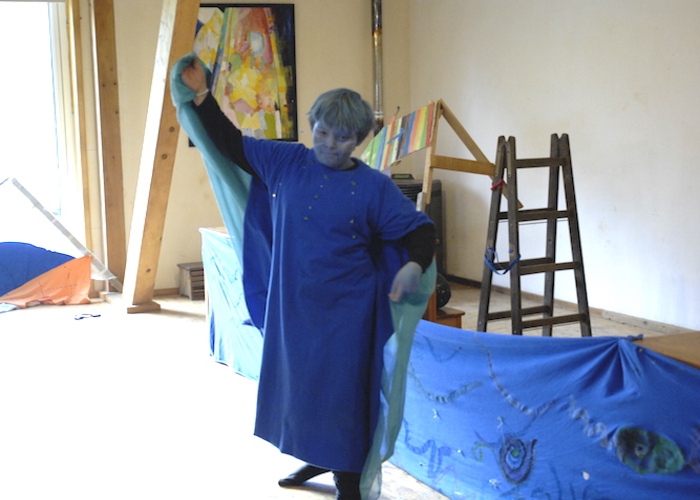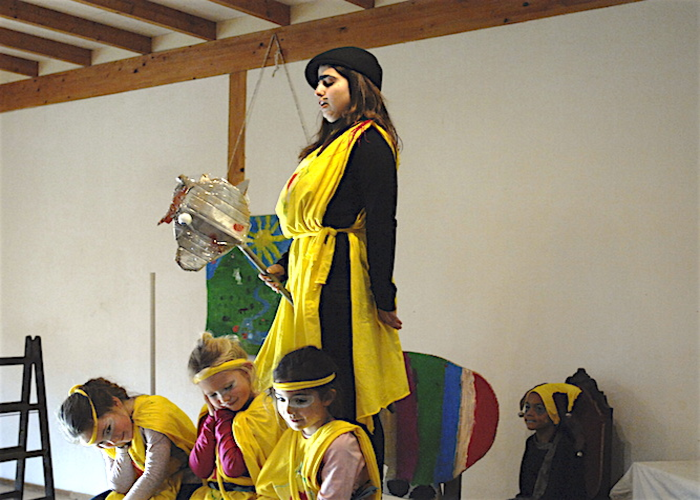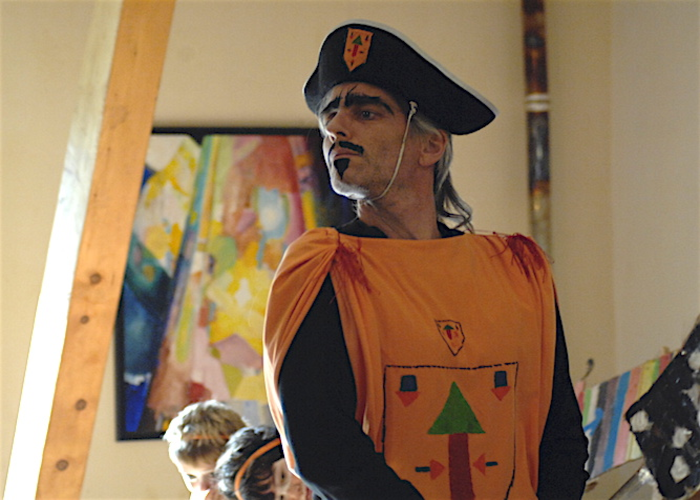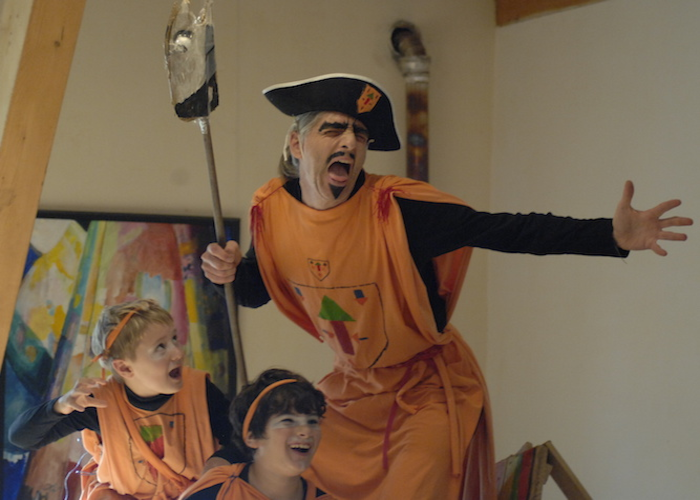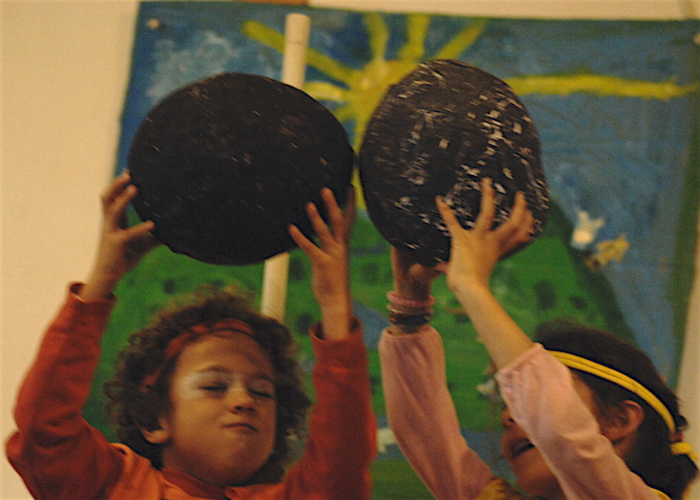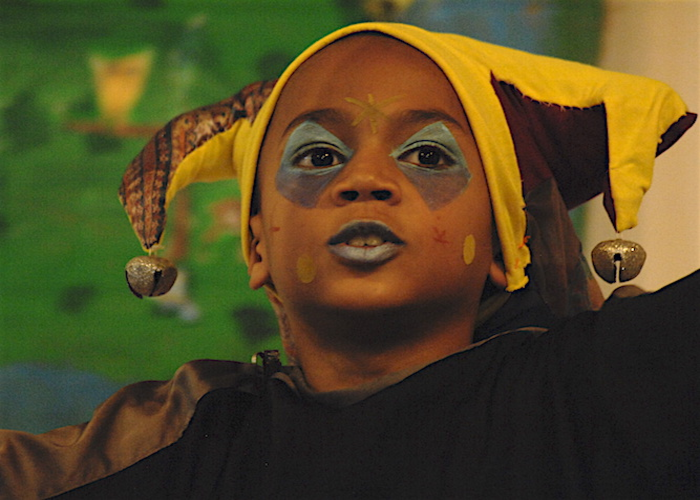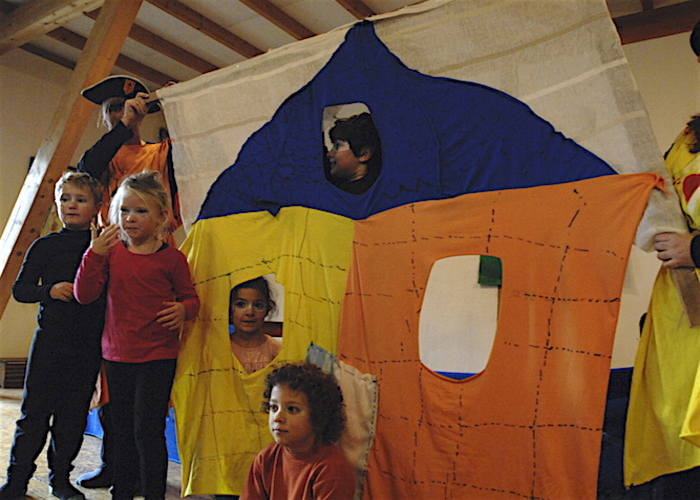Welcome dear ennemy
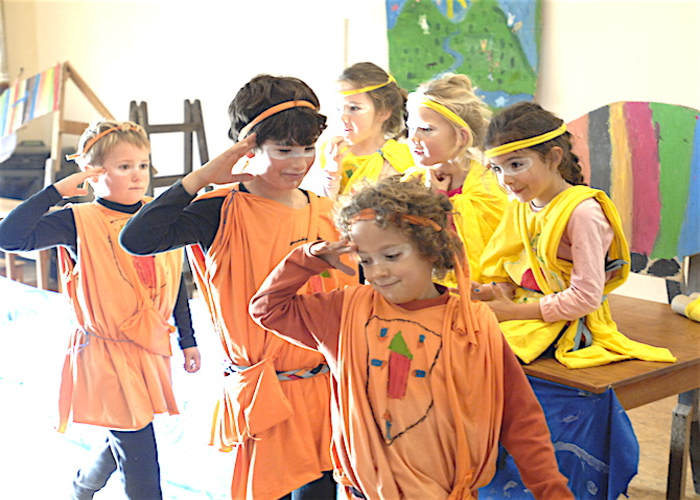
A theater project from children of the primary classes.
In our subject “estudo do meio” (which involves history and geography), the primary group, came across human history in Portugal. Who was here before me? What were those people doing? Those were questions the children, between 7- 11 years, were having. They also found out: a lot of people were having conflicts around one piece of land. But why? Why weren’t they simply sharing the space? And who of the two groups was right? And who was wrong? Who is the bad one in this conflict? Is there a mean and guilty one in this big story of humanity? And what to do with a seemingly mean person in front of you?
We, adults, were then wondering what to do with all of those questions, risen by children while learning about our past?
Aron, a boy (7), came across a book called: “Welcome, dear enemy”, by Gudrun Pausewang, which was the perfect base for this process-oriented theater project. By creating a theater piece around friendship, war, humaneness, and reconciliation, we could start giving expressions to the conversations we have had before in studying “estudo do meio” and in getting to know the war situation in our world. Also our daily life issues of: Who is right? Why does someone behave in a mean way? Etc. All of those questions that the students are moving inside of themselves were given a space in the class. Through body and mind, feeling into it, thinking it through and receiving answers on the level of the child’s pure being.
Like Francisco (7) says: “o mal pode ser só uma ilusão na cabeça” (the evil can just be an illusion in the head)
Training Portuguese language skills, listening to the others, being able to show emotions just with your face and without sound, improvising scenes, keeping the focus when repeating a scene over and over again, awareness over space, sewing costumes, painting backgrounds, inventing and evolving dialogues through improvisation, helping each other, channeling the energy before the big performance… All these abilities (and more) have been worked on and trained throughout these 4 weeks.
The children were shining after the two big performances they had given to audiences. For many it has been the first time of showing themselves in front of 90 people. Now it is time for integration. Those big life questions around how to create peace, how to deal with big excitements and sleepless nights before performances – all this has now time to sink into the bodies of those big beings, learning how to walk peacefully on our planet earth.
And our daily learning continues in the project “ Escola da Esperança”.





